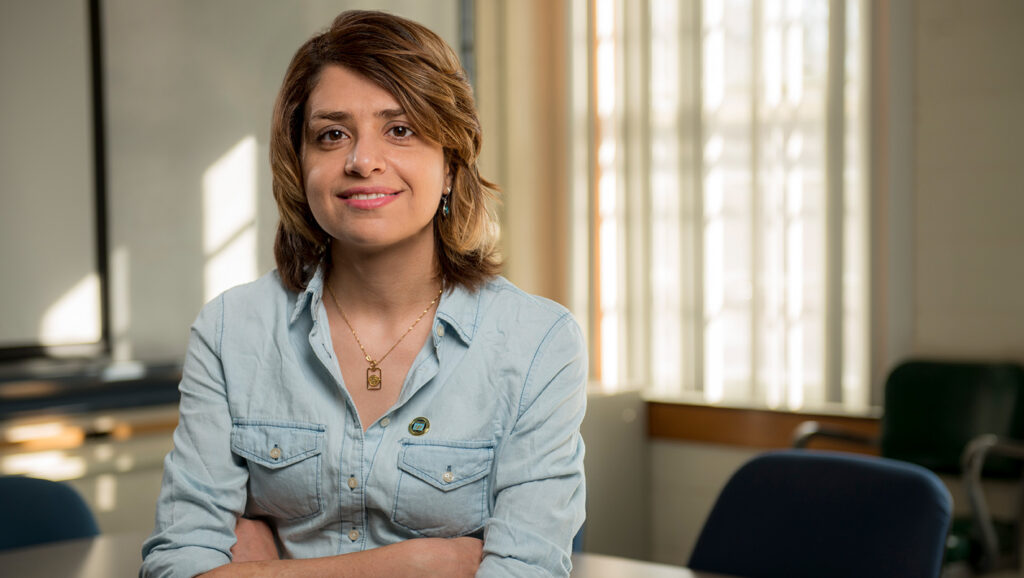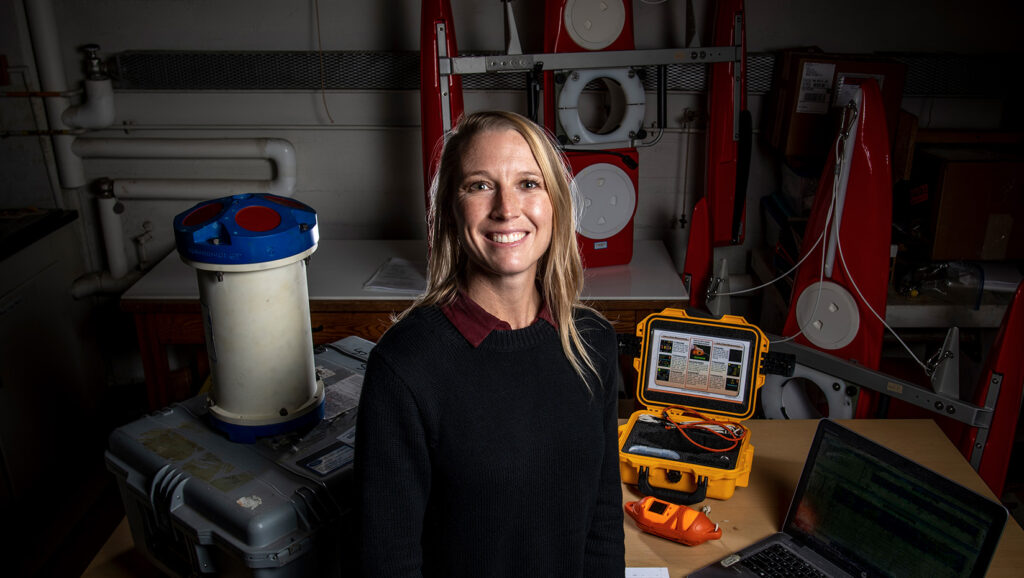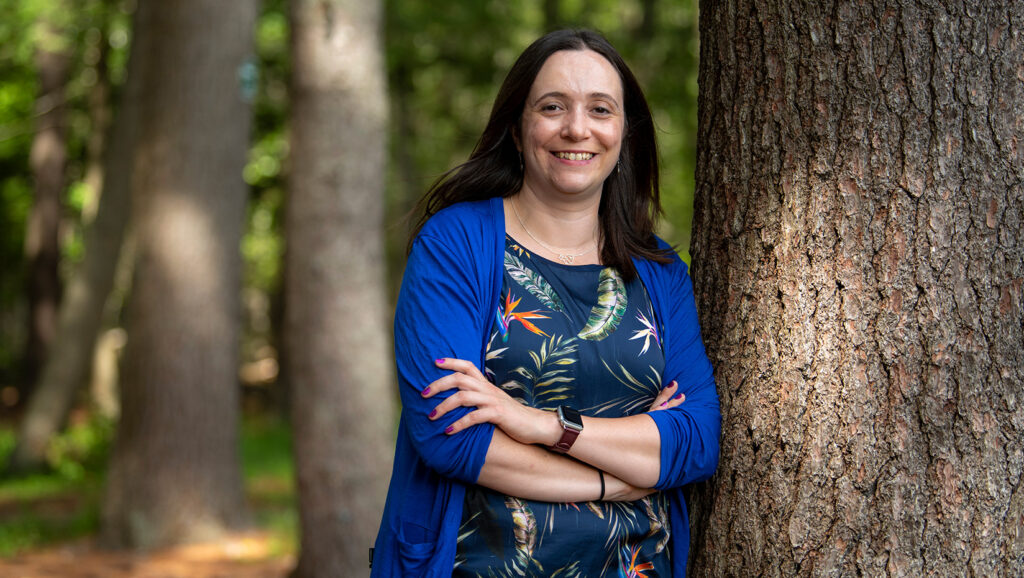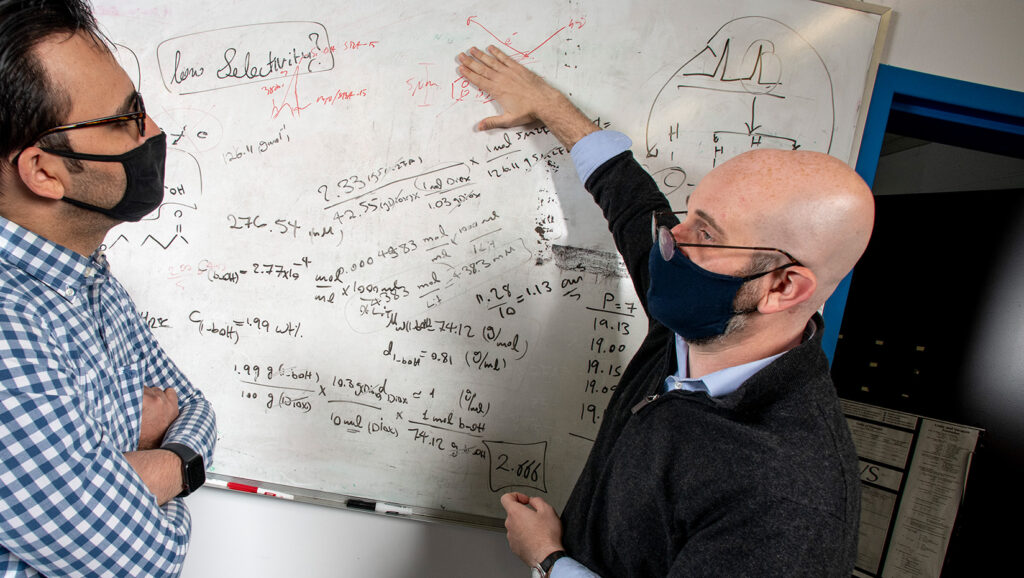University fo Maine faculty have competed in the National Science Foundation CAREER program since 1996. The first faculty member to apply received an award, and since that time, there have been an additional 137 proposals.
A total of 22 CAREER awards have been received by UMaine faculty, including four from the most recently completed competition (2020 submission date). After 20 years of single-digit submission rates, 10 or more faculty have applied each year since 2017, due in large part to systematic outreach and proposal development support to eligible applicants provided by the UMaine Office of Research Development.
The awards, among NSF’s most prestigious, support early career faculty “who have the potential to serve as academic role models in research and education and to lead advances in the mission of their department or organization,” according to the website. Activities pursued by early career faculty are expected to build a firm foundation for a lifetime of leadership in integrating education and research. NSF encourages submission of CAREER proposals from early-career faculty at all CAREER-eligible organizations, and especially encourages women, members of underrepresented minority groups, and persons with disabilities to apply.

Sheila Edalatpour
Sheila Edalatpour, assistant professor of mechanical engineering, studies quantum-size effects on radiative heat transfer (RHT), energy emitted from heated surfaces and transferred from one component to another in the form of electromagnetic waves. She will investigate how RHT changes when the materials involved are quantum size, or when they are separated by a gap of the same size as one or multiple atoms. Determining how material size affects RHT can help engineers design new materials to build more efficient, powerful and reliable devices for energy, computing, health care and other purposes.

Lauren Ross
Lauren Ross, assistant professor of hydraulics and water resources engineering, is improving understanding of how estuary shape, river discharge and tides influence fresh and saltwater mixing. The extent of the mixing process can influence how long particles, such as contaminants, nutrients and larvae, remain in an estuary, and whether it experiences hypoxia — or low oxygen levels. She will use on-site data and numerical model simulations to quantify the mixing processes in more complex estuaries — Penobscot River Estuary in Maine, Reloncavi Fjord in Chile and Gironde Estuary in France.

Danielle Levesque
Danielle Levesque, assistant professor of mammalogy and mammalian health, studies temperature regulation in diurnal and nocturnal equatorial small mammals in an effort to describe the impacts of climate change on species living in aseasonal tropical environments. Since 2014, she has collaborated with scientists at the Universiti Malaysia Sarawak in Borneo, a hot spot for mammalian diversity. Her research will enhance understanding of the relationships between past and current environmental temperatures, and the life history and energetics of the island’s small mammals.

Thomas Schwartz
Thomas Schwartz, associate professor of chemical engineering, is advancing his ongoing dissection of the Lebedev process. The well-known, multistep chemical reaction is used to make butadiene from biomass-derived ethanol, but little research has been conducted on the Lebedev process at the molecular level. Better understanding would help researchers create new catalysts, which are necessary for the chemical reactions to make goods from both petroleum and biomass, that would increase butadiene yield. The emergence of improved catalysts could help grow the development of biobased, renewable chemicals.
